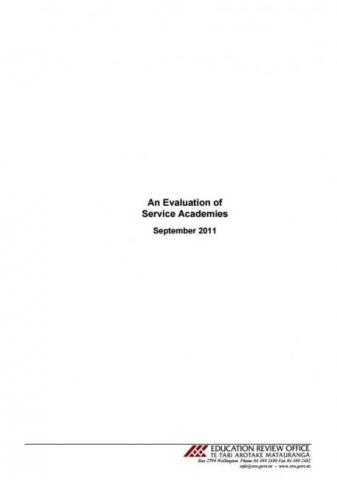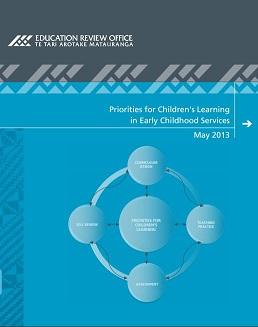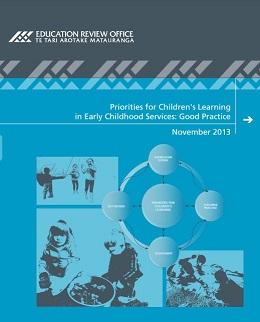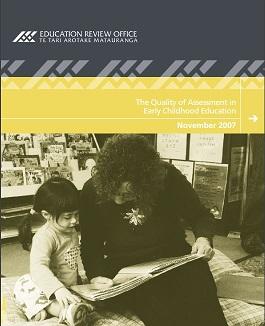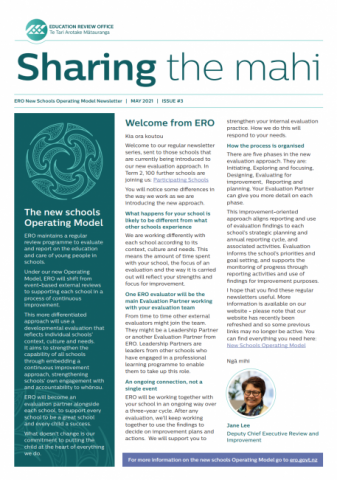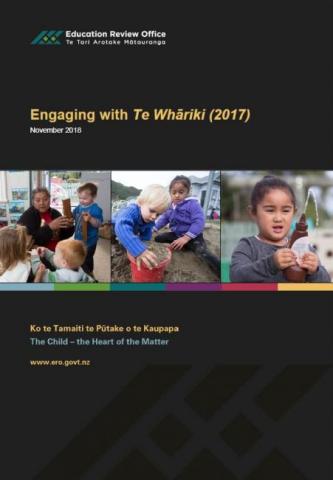An Evaluation of Service Academies
Published: 27 Oct 2011
This report discusses the performance of 16 service academies funded by the Ministry of Education. These are located at 16 predominantly low decile secondary schools across the country.
- Audience:
- Schools
- Content type:
- Research
- Topics:
- Service Academies
- Youth Guarantee Programme
